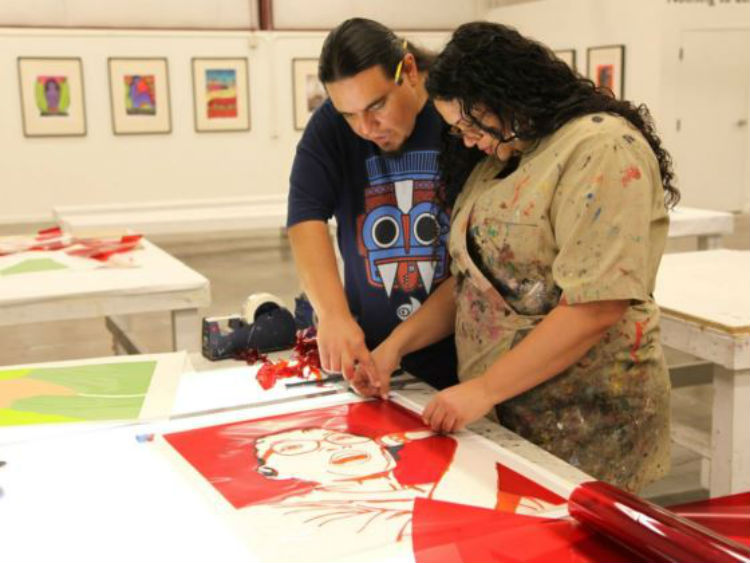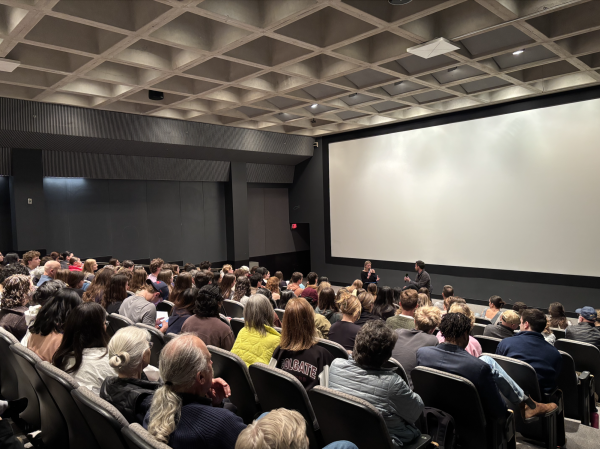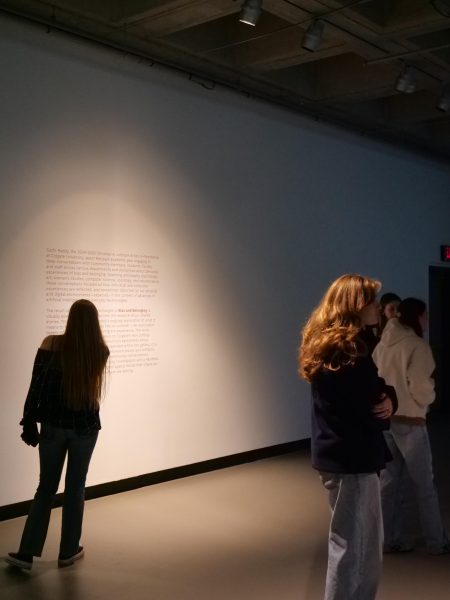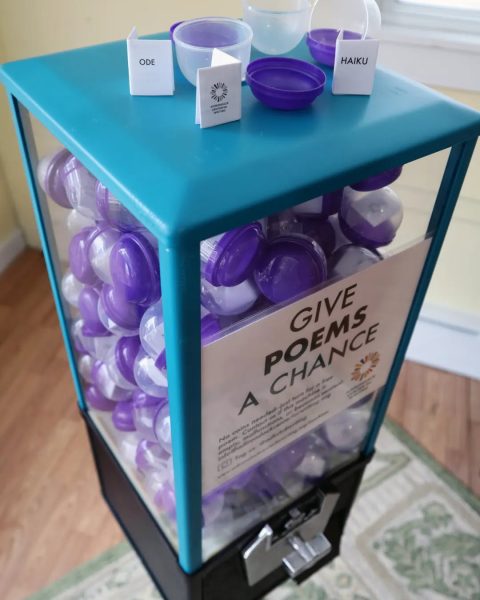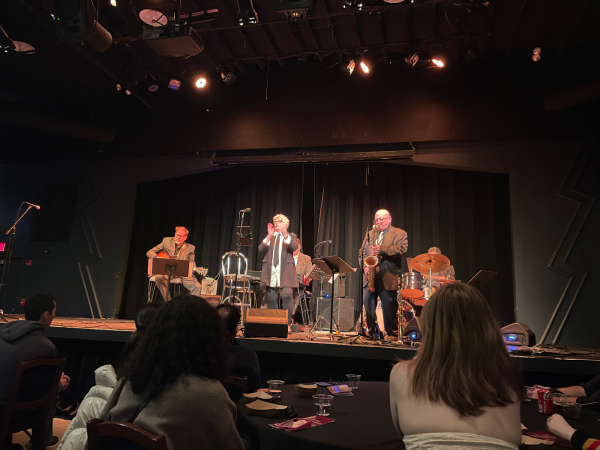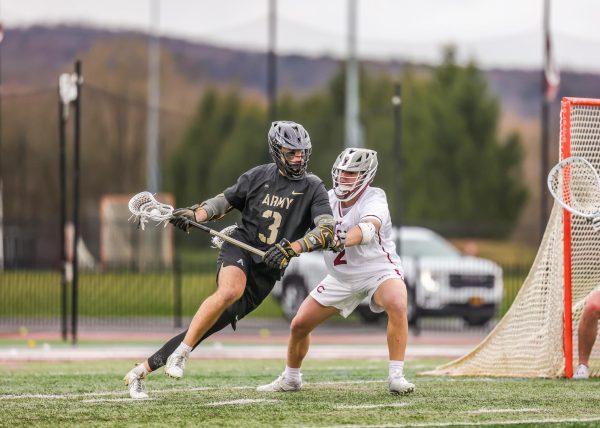Melanie Cervantes and Jesus Barraza Discuss the Evolution of their Art During COVID-19
Colgate’s Art and Art History Lecture series, Graphic Liberation, wrapped up on Wednesday, April 14 with a visually and verbally vibrant lecture featuring Xicanx artists and activists Melanie Cervantes and Jesus Barraza.
In 2007, Cervantes and Barraza cofounded Dignidad Rebelde, a graphic arts collaboration that produces screen prints, political posters and multi-media projects focused on transforming conditions of fragmentation, displacement and loss of culture born out of destructive histories of colonialism, patriarchy, genocide and exploitation.
During the COVID-19 pandemic, Cervantes and Barraza’s artistry has persevered, and metamorphosed to undertake new methods of creating as well as poignant topics such as community and solidarity.
Cervantes described her first attempts to do printmaking at home with sticker stencils from her Cricut machine. She was inspired to reflect on and showcase the interconnectedness of her community as they took on new responsibilities for one another at the same time that the people inundating the news were having “mask meltdowns.” With this piece entitled Yo Te Cuido, Tú Me Cuidas (2020), Cervantes wanted to momentarily pivot away from naysayers and celebrate the communities who were showing up for one another.
Barraza reflected that his artwork became more inspirational and grounded in the politics behind the pandemic. He became interested in highlighting different heroes in the community who helped others and showing that COVID-19 is a symptom of capitalism.
“I don’t want to just think of COVID-19 as the thing that we’re dealing with as people right now. There’s no definitive answer as to how it started, but the way that a lot of these epidemics start is because people are doing things to survive capitalism. Capitalism is what drives it and what drives the spread of it. Capitalism, from the beginning, has been the thing that made people have to go to work and ended up getting people sick. It’s been the thing that’s driven people to say, ‘We need to reopen! We need to reopen!’” Barraza said.
Eager to bring solidarity to the forefront, Barraza engaged with the community directly by creating small digital prints for fundraisers. Cervantes decided to revisit old-school mail art by gathering email addresses over Instagram and sending postcards and linoleum prints out to encourage safe connections between people at home and the continued dissemination of heartening art at this difficult time.
Cervantes and Barraza also discussed the institutionalization of activist art made by and largely for marginalized groups who may not have access to those spaces or be the donors in those institutions.
“It’s interesting to hear about the struggle with the institutionalization of art — especially protest art — from the artists themselves, and see them try to navigate the issues between knowing that institutions cannot exclude marginalized voices, while at the same time recognizing that even if art from these voices is institutionalized, it has to be considered who has access to these institutions as well as their histories. These voices cannot be excluded, but at the same time, the institution itself needs to change to make itself accessible to all people,” junior Elizabeth Svach said.
While it is important to amplify awareness of these marginalized artists and the issues that they concern themselves with, it could limit and depoliticize the piece, which could be avoided when art is spread on the streets. Christian A. Johnson artist-in-residence and host Josh Macphee also mentioned that the presence of these political images in institutions often misleads people into thinking that the changes being advocated for are finished, when in fact they are still very much in progress.
“What stuck out most was their emphasis on connections to others, the importance of meaningful non-transactional relationships with the activist groups and individuals they collaborate with, and their focus on the long process to achieve social change,” Professor of Art Dewitt Godfrey said.
Even during the pandemic, Cervantes and Barraza dedicate themselves to their artwork, which continues to grow along with them and impact their audiences. At this particular moment, with the help of radical and inspirational art, we are encouraged to discover how we feel about the institutions around us and, introspectively, how we understand ourselves.
“If we don’t understand ourselves then we don’t understand our place in the struggle,” Cervantes said.


